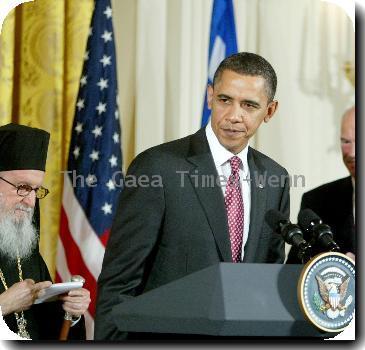G20 finance chiefs meet, focus on keeping growth on track, fending off financial crises
By Elaine Kurtenbach, APFriday, June 4, 2010
G20 finance chiefs mull deficits, banking rules
BUSAN, South Korea — Finance chiefs of leading economies tackled the thorny issue of reforming supervision of banks and other financial institutions Saturday, the urgency of their task sharpened by fears Hungary’s debt crisis could bring on a new round of financial turmoil.
The Group of 20 major advanced and developing economies looked likely to put aside discord over technical details for the sake of progress on an outline for a coordinated program of financial reforms to be endorsed by leaders, including President Barack Obama, in a June 26-27 meeting in Toronto.
Friday’s talks focused on the need to rein in ballooning deficits.
“The majority of the member states put budgetary consolidation as their top priority,” French Finance Minister Christine Lagarde told reporters.
Stocks in the United States plunged Friday after a weak jobs report, with the Dow industrials losing 324 points.
In Europe, fears that Hungary might face a Greece-like financial meltdown pushed the euro to below $1.20 for the first time in more than four years.
“The mood has changed decisively in favor of encouraging those countries facing the highest risks to accelerate their deficit reduction plans,” British Chancellor George Osborne wrote in Saturday’s edition of The Times Online.
As they began their talks Friday in the South Korean port city of Busan, the finance ministers and central bankers showed growing concern over the threat to the global recovery from Europe’s sovereign debt crisis. Hungary became the latest country to warn Friday it was facing problems, following Greece, Spain and Portugal.
“The recent event in Europe and volatility in the financial market have clearly shown us the global recovery is still fragile,” said Yoon Jeung-hyun, South Korea’s minister of strategy and finance, referring to Europe’s $1 trillion bailout at the opening as the chair of the session.
“Today we are meeting at a critical time when our cooperation is more important than ever to address significant economic risks and firmly secure the global recovery,” Yoon said.
The group were to end their talks later in the day with a statement that is expected to express strong support for Europe’s bailout.
But the agenda also includes reform of international financial institutions and nuts-and-bolts issues on how to finance and structure safety nets to limit damage from future crises.
This includes “the need to ensure the credibility of the massive mechanisms needed to restore stability,” Lagarde said.
Apart from controversy over whether to impose a bank levy to fund bailouts, members are also debating a global standard for capital reserves that financial institutions must hold as cushion against potential loan losses.
Osborne said he still would be pushing for agreements on tightening banking capital requirements to be concluded, to “end the uncertainty.”
But some members fear that too steep or fast an increase would prompt banks to curb lending, cutting off funding crucial for the recovery.
“There will be a delay in implementation,” said Lagarde, noting the need for technical work on the rules.
The G-20, founded in 1999, shifted its focus to crisis management after the 2008 collapse of U.S. investment bank Lehman Brothers. The group meeting in Busan is drafting an agenda for a summit meeting in Seoul in November that includes building a “framework for strong, sustainable and balanced growth.”
On Friday, World Bank experts at a conference in Busan said that agenda must take into account the growing need to tap the strong potential of developing economies, which are due to see 6 percent growth this year — twice that of the advanced economies.
Associated Press writers Sangwon Yoon and Kelly Olsen contributed to this report.
Tags: Asia, Barack Obama, Busan, Canada, China, East Asia, Europe, Government Regulations, Greater China, Industry Regulation, North America, Ontario, Recessions And Depressions, South Korea, Summits, They, Toronto, United States



